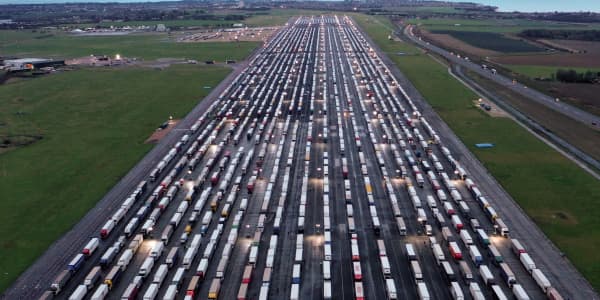
Information technology giant Cisco is on a mission to increase global digitization and it has its eyes set on Southeast Asia.
The American multinational company operates a worldwide initiative called the Country Digital Acceleration strategy that helps nations make efficient use of big data, the Internet of Things and smart connectivity. Cisco hopes to increase a country's competitiveness, economic growth, job creation and innovation through investments in the startup space, education, infrastructure and healthcare.
Southeast Asia is "primed" for the program, Guy Diedrich, vice president and global innovation officer at Cisco, told CNBC's Akiko Fujita on Thursday. Not only is the region "very entrepreneurial," it also boasts "a highly educated population" and "off the charts" gross domestic product growth, he said.
Speaking at the East West Tech conference in China's Nansha district, Diedrich said the program essentially creates a digital architecture for a government and then builds an execution plan for stakeholders to follow. The goal, he explained, is to help countries transition into knowledge-based economies.
Indonesia became the first Southeast Asian country to join Cisco's venture in September. Other partners include India, the Netherlands and Portugal.
When partnering with nations, Cisco first looks for a "very strong, engaged visionary leader" because without that, "we really cant move as quickly as we need to," Diedrich said.
The entire operation is a long-term growth strategy for Cisco and the broader IT industry, but it's also beneficial for smart cities, Diedrich continued. "Technology is only the enabler, we want to make sure that the focus is on the outcomes: GDP growth, jobs creation and building a sustainable innovation eco-system."
A major concern underlying the rise of automation and smart connectivity — two major components of digitization — is the effect on labor markets. Data from the World Economic Forum suggests that 75 million jobs will be displaced as a result of technological developments.
To ensure countries are protected against job losses, Cisco's program is heavily focused on training and educating workers, Diedrich said.
"There will be some jobs that go away out of necessity and they should," he said, but they will be replaced with better paying jobs that harmonize with innovation-based economies. "It is incumbent upon governments and industries to work together and retrain those people."
On the topic of U.S.-China trade frictions, the businessman said Cisco had yet to be impacted by the ongoing tariff spat.
"We optimize our supply chain, for instance we're constantly reconciling with the volatility of memory prices, and so we have not seen a dramatic fall at all. In fact, we've seen quite good growth in our enterprise business."




